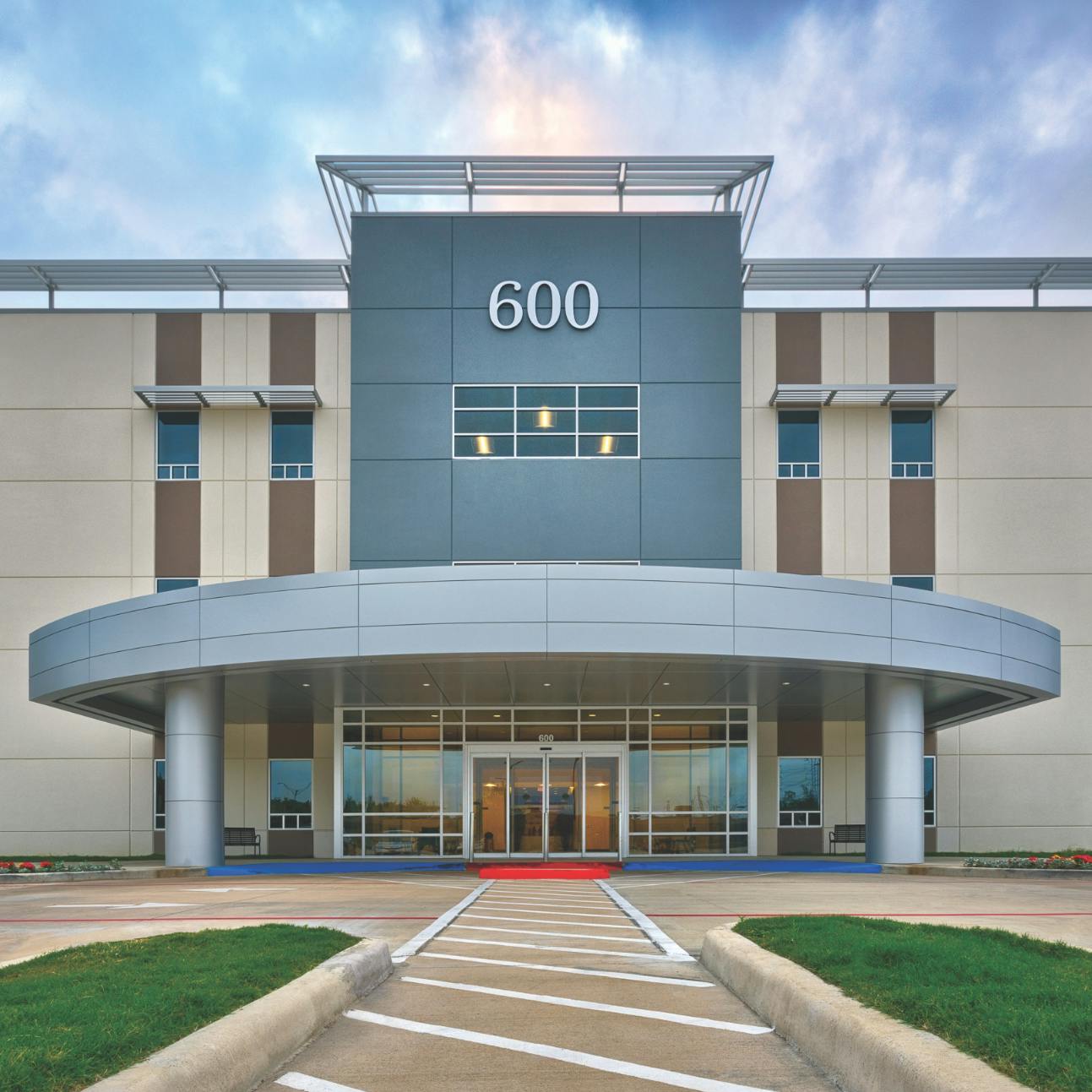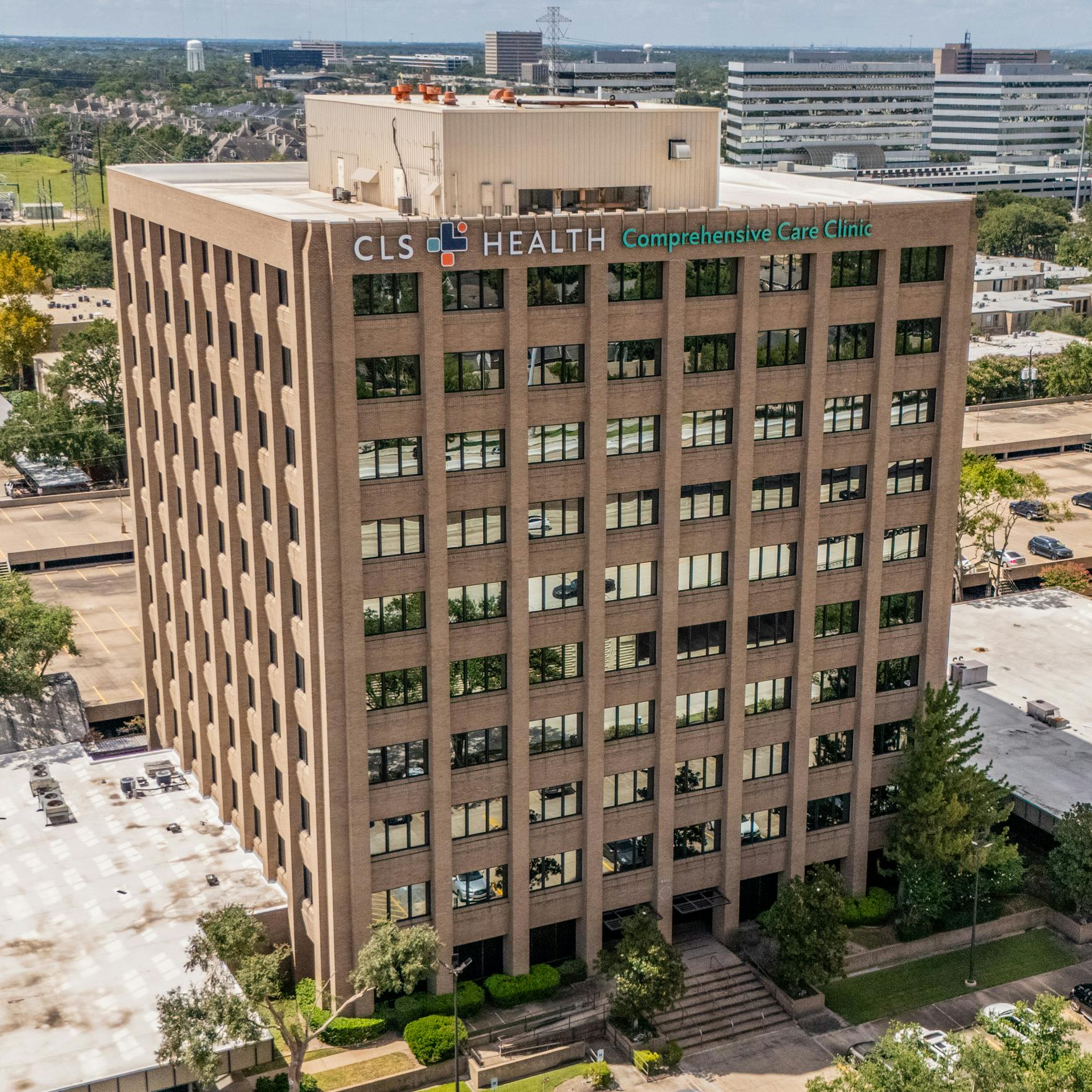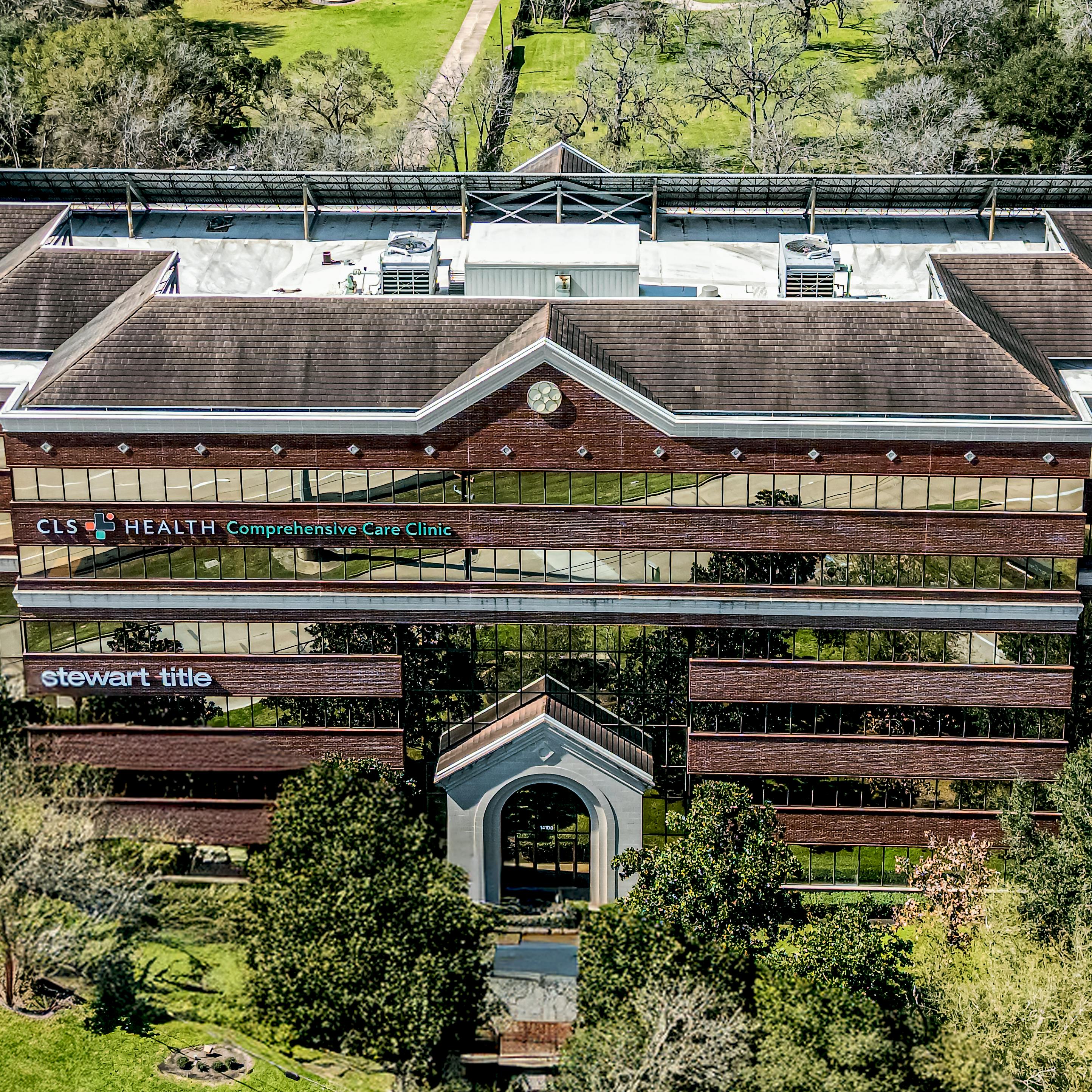Nephrology

Houston’s Trusted Specialists for Kidney Health
Nephrologists at CLS Health provide comprehensive, specialized care for the full spectrum of kidney conditions. Our board-certified kidney specialists diagnose and deliver treatment for everything from chronic kidney disease and hypertension to kidney stones and transplant management.
We know that kidney challenges can touch every aspect of your life. Whether you're navigating early-stage kidney disease, facing complex renal challenges, or need ongoing care after transplantation, our specialists develop personalized treatment plans to preserve kidney function, manage symptoms, and improve your quality of life.
Our kidney care team also works closely with your primary care physician and other specialists to ensure seamless coordination throughout your treatment journey. With a patient-centered approach that combines clinical excellence and compassionate care, we're here to be your partner in kidney health at every stage.
Providers

Nephrology

Interventional Nephrology, Nephrology

Nephrology

Nephrology

Jingyin Yan
MD, PhD, FASN
Nephrology
Conditions Treated
We treat acute kidney injury (AKI), a sudden decline in kidney function often caused by dehydration, infection, or certain medications. Our care focuses on restoring fluid balance, adjusting medications, and using temporary dialysis if needed. For urinary tract obstructions caused by kidney stones, tumors, or an enlarged prostate, CLS Health offers surgical, medication-based, and minimally invasive treatment options to restore kidney flow and prevent lasting damage.
Chronic kidney disease (CKD) develops gradually, often from diabetes, hypertension, or autoimmune disorders. Our team helps slow progression through blood pressure control, diet modification, and medication management. We also treat polycystic kidney disease (PKD), a genetic condition that causes painful cysts and high blood pressure, with treatment plans focused on symptom relief and preserving kidney function.
Our nephrologists specialize in immune-mediated kidney conditions such as lupus nephritis, vasculitis, and renal artery stenosis. Treatments may include immunosuppressive therapies, corticosteroids, or angioplasty to restore healthy blood flow. We focus on reducing inflammation, protecting kidney tissue, and maintaining long-term organ health.
High blood pressure is both a cause and a result of kidney disease. At CLS Health, we use medications like ACE inhibitors and ARBs, along with lifestyle counseling and continuous monitoring, to protect the kidneys from hypertension-related damage. Our goal is to maintain optimal kidney function and prevent future complications.
We evaluate and treat proteinuria (protein in the urine) and electrolyte imbalances that signal kidney dysfunction. Our approach includes medication management, tailored nutrition, and regular monitoring to prevent further damage. By addressing sodium, potassium, and calcium imbalances, we help restore stability and improve overall kidney performance.
Treatments
Our nephrologists manage kidney stones (nephrolithiasis) using both conservative and procedural methods. Depending on severity, treatments may include increased hydration, pain control, shock wave lithotripsy, or surgical removal. We also provide preventive care to reduce the risk of recurrence through diet and medication guidance.
For patients with significant kidney failure, CLS Health provides in-center hemodialysis in a safe, monitored environment. Dialysis helps remove waste, toxins, and excess fluids from the blood, improving energy levels, and overall health. Our team supports each patient through education, nutritional counseling, and long-term care coordination.
We offer comprehensive kidney transplant services, from pre-transplant evaluation through post-transplant monitoring. Our specialists manage anti-rejection medications, monitor kidney function, and provide lifelong support to protect the new organ. CLS Health’s goal is to help every patient achieve the best possible kidney health and quality of life after transplant.
Don't see your insurance listed? We may still accept it! CLS Health updates accepted insurance plans regularly. Please call (281) 724-1860 to verify your coverage.
- Aetna Select
- Open Access Selects
- Elect Choice
- Aetna Open Access Elect Choice
- Aetna Choice POS II
- Managed Choice
- Open Choice PPO
- Aetna Medicare Advantage Plans
CLS Health does not accept:
- Aetna CVS Marketplace Plans
* Some providers may not accept this insurance, please call to confirm
- Superior Ambetter Core (Complete, Clear, Focused, Standard Silver and Gold)
- Superior Ambetter Value (Clear Value Silver, Focused Value Silver, CMS Standard Silver & Gold Value, Everyday Value Gold)
- Superior Ambetter Virtual (Ambetter Virtual Access Silver, CMS Standard Virtual Access Basic Silver, Ambetter Virtual Access Gold)
- Superior Health Plan CHIP*
- Superior Health Plan MAPD (Medicare Advantage Prescription Drug)
- Superior Health Plan Medicare
- Superior Health Plan MMP Medicaid*
- Superior Health Plan MMP Medicare
- Superior Health Plan STAR*
- Superior Health Plan STAR Kids*
- Superior Health Plan STAR+PLUS*
CLS Health participates in most Blue Cross Blue Shield plans including:
- Blue Choice PPO
- Blue Essentials
- Blue Essentials Access
- HealthSelect
- HealthSelect of Texas In Area
- Consumer Directed HealthSelect in Area
- HealthSelect of Texas Out of State
- Consumer Directed Health Select Out of State
- HealthSelect Secondary 65+
- Medicare Advantage HMO
- Medicare Advantage PPO
- Medicare Advantage Value HMO
- POS
- Traditional/Par Plan
- TRS-Active Care
- TRS-Care Standard
- BCBS MyBlue Health (Marketplace)
*Some providers may not accept Community Health Choice, please call to confirm
- MarketplacePremier
- Medicaid*CHIPCHIP PerinateSTAR
- Medicare AdvantageDual-Special Needs Plan (D-SNP)
- ChoiceCare PPO
- EPO
- HMO
- HMO Premier
- Medicare Advantage Plans
- HumanaChoice - Medicare Advantage PPO plan
- Humana Gold Choice - Medicare Advantage Private Fee-for-Service (PFFS) plan
- Human Gold Plus - Medicare Advantage HMO & Special Needs Plan
- Military (TRICARE South Region Military Health Plan)
- POS - including Choice POS, National POS Open Access/Plus and Preferred POS Open Access.
- PPO
*Some providers may not accept United Healthcare, please call to confirm
- Commercial, HMO, POS, EPO and PPO Plans (Charter, Choice,Core, Doctors Plan, Freedon, Heritage, Navigate, Nexus ACO, Options PPO, Passport Connect, Select)
- Indemnity
- Medicare Advantage (AARP, Care Improvement Plus, C-SNP, D-SNP, I-SNP, Erickson Advantage, ERS Medicare Advantage, TRS-Care Medicare Advantage, UnitedHealthcare Chronic Complete, UnitedHealthcare Connected (Medicare-Medicaid Plan), UnitedHealthcare Dual Complete, UnitedHealthcare Group Medicare Advantage PPO, United Healthcare Medicare Complete)
- Community Plans* (CHIP, CHIP Perinate, Star, Star Kids, Star Plus, MMP)
- Wellmed (Wellmed Dual SNP Focus, Wellmed Medicare Advantage Focus)
*Some providers may not accept Wellpoint, please call to confirm
- Medicaid (All Texas Plans Including the Below)*
- CHIP
- CHIP Perinate
- STAR
- STAR+PLUS
- STAR Kids
- Medicare Advantage
- C-SNP
- D-SNP
- I-SNP
- Medicare Advantage HMO
- Medicare-Medicaid (MMP)
- Medicare-Medicaid Program (MMP)
- STAR+PLUS MMP
*Some providers may not accept insurance, please call to confirm
PPO Networks
- Beechstreet PPO
- Carnival Cruise Lines PPO
- Envolve Benefit Options Vision-PPO, HMO
- First Health
- Curative/First Health
- Galaxy Health Network
- HealthSmart Preferred Care
- Accel
- Healthsmart Payors Organization
- Multiplan PPO
- Tricare (Humana) PPO/Prime
Employer-Specific Plans
- Brazoria County Employees – Aetna TPA Brazoria County Employees
Workers’ Compensation Plans
- Workers’ Comp
- Auto & Workers’ Comp
Medicare and Medicare Advantage
- Medicare Traditional
- Medicare Advantage
- Memorial Hermann Health Solutions Commercial and Medicare
- Molina Medicare Complete Care HMO SNP
- Medicare-Medicaid Program (MMP)
- STAR+PLUS MMP
- Alignment Health Plan
- AllyAlign Health
- American Health Plans
- Florida Complete Care
- Gold Kidney Health Plan
- Imperial Health
- Independent Health
- Kaiser Foundation Health Plan of Washington
- Kaiser Foundation Health Plan of Colorado
- Mass Advantage
- Presbyterian Health Plan
- PriorityHealth
- Provider Partners
- SCAN
- UCare
- Vantage Health Plan
- Verda Healthcare
- Zing Health
Medicaid and CHIP Programs
- Molina Healthcare* (Marketplace, Medicaid, CHIP, CHIP Perinate, STAR, STAR Kids, STAR+PLUS)
- Texas Children's Health Plans*
- TMHP (Traditional Medicaid) Traditional Medicaid
Specialty Plans
- VA Community Cares Network CCN
Nephrology FAQs
A kidney specialist is called a nephrologist. Nephrologists diagnose and treat kidney diseases, high blood pressure, dialysis, and kidney transplants.
You should see a nephrologist if you have chronic kidney disease (CKD), high blood pressure that’s difficult to control, kidney stones, abnormal kidney function labs, blood or protein in your urine, or swelling in your legs and feet. Referral is also recommended if your primary care doctor identifies declining kidney function.
Doctors check glomerular filtration rate (GFR) to measure kidney function. While GFR naturally declines with age, general ranges are:
- 90+ GFR: Normal kidney function
- 60–89: Mild loss of kidney function
- 30–59: Moderate kidney disease
- Below 30: Severe kidney disease
- Below 15: Kidney failure (may require dialysis or transplant)
A creatinine blood test also helps assess kidney health.
Early kidney disease often causes mild or subtle symptoms. Common early signs include:
- Swelling in the legs, feet, or face
- Foamy or bloody urine
- Frequent urination, especially at night
- Fatigue or weakness
- High blood pressure
If you experience these symptoms, a kidney function test can help detect problems early.
Kidney failure (end-stage renal disease) occurs when the kidneys can no longer filter waste effectively.
Common causes include:
- Diabetes — the leading cause
- High blood pressure — damages kidney blood vessels
- Progression of chronic kidney disease (CKD)
- Autoimmune diseases, such as lupus nephritis
- Repeated or severe infections
- Dehydration or acute kidney injury
Kidney stones form when minerals and salts in the urine crystallize and stick together.
Common causes include:
- Dehydration (not drinking enough water)
- High sodium & oxalate diet (found in salty foods, nuts, and spinach)
- Genetic predisposition
- Certain medical conditions (hyperparathyroidism, urinary tract infections)
Healthy lifestyle habits support kidney function:
- Drink enough water (usually 6–8 cups daily unless your doctor advises otherwise)
- Keep blood pressure and blood sugar well controlled
- Reduce sodium intake
- Avoid excessive NSAIDs (ibuprofen, naproxen)
- Avoid smoking and limit alcohol



